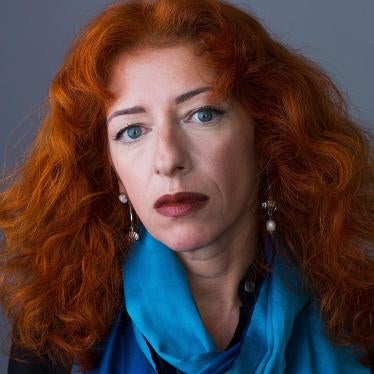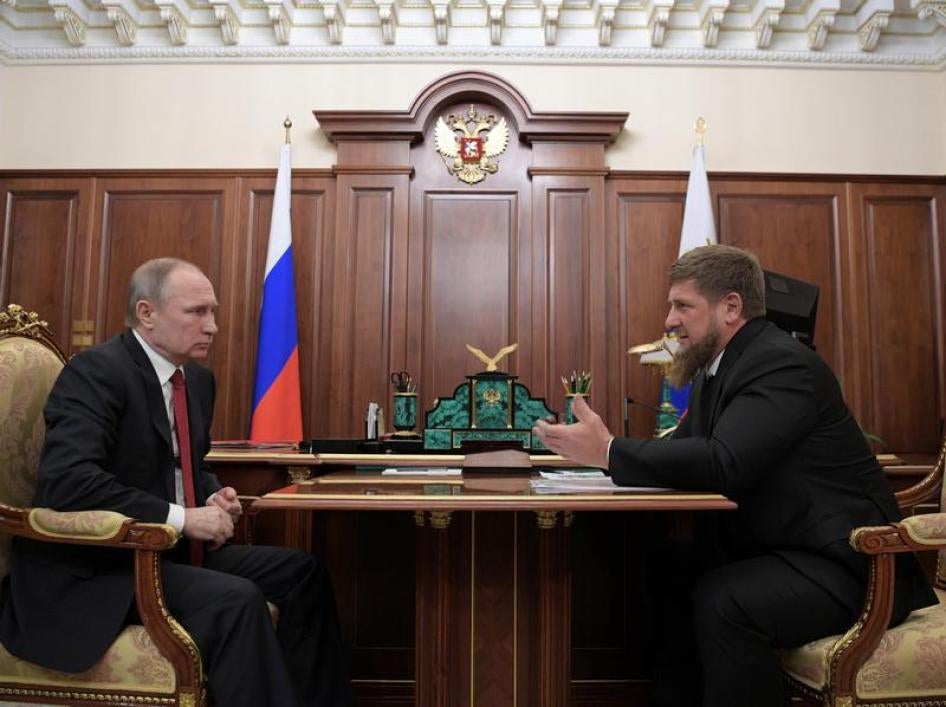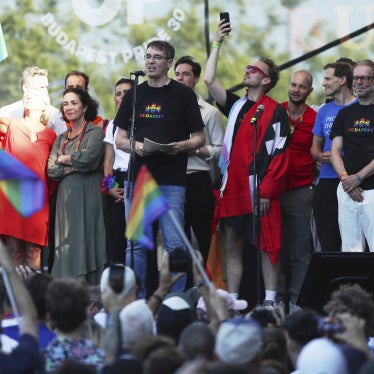Russia’s president Vladimir Putin met yesterday with the Chechen leader, Ramzan Kadyrov. Official reports from the meeting indicate that they mostly spoke about economic issues – housing, unemployment, and agriculture. But in the middle of this rather routine conversation Kadyrov suddenly mentions “provocative articles about the Chechen Republic, the supposed events… the supposed detentions…”. What he is referring to, of course, are the disturbing allegations of a brutal campaign against gay people in Chechnya.
Since February 2017, Chechen police and security officials have waged a terrifying anti-gay purge, rounding up dozens presumed gay and bisexual men, holding them in unofficial detention facilities in horrific conditions, torturing and humiliating them, shaming their relatives, and encouraging “honor killings.”
Novaya Gazeta, a leading Russian independent paper, first broke the story on April 1, and Human Rights Watch corroborated the information based on reports from our own sources.
Last week, we interviewed several victims of the purge who fled Chechnya for central Russia. “They treated us like animals,” said a man who spent a week in an unofficial detention facility. “Beatings, electric shocks I could deal with… I was strong. But the humiliation was unbearable,” he said. “The [police] spit in our faces, they called us disgusting, offensive names, they forced us into humiliating poses…When they finally released me, I was close to hanging myself. I cannot live with this, I just can’t.” Other victims told us similar stories.
During his meeting with Putin, Kadyrov indignantly denied the allegations, and Putin did not ask him any questions about it. But the fact that the meeting’s official record includes Kadyrov’s denials makes clear that both men deemed this issue important enough to include in the snippets of their discussion released to the press, and that Putin did raise the allegations with Kadyrov. This was likely a result of consolidated and persistent international pressure.
In recent days, international leaders have expressed profound concern about the anti-gay campaign, and called on Moscow to intervene. The Kremlin has not seen such outcry on Chechnya for many years – and the pressure has clearly worked. The Kremlin has moved from merely suggesting that victims should file official complaints, to yesterday opening a federal investigation into the allegations and now to discussing the situation with Kadyrov.
Global leaders should sustain this pressure if they want the anti-gay purge in Chechnya to end once and for all.









